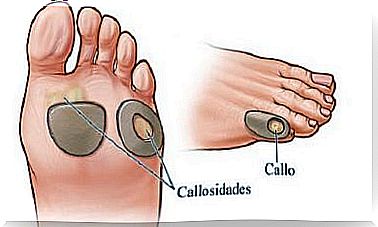Aikido And Its Therapeutic Contributions
Although many people associate martial arts with violence, the end of aikido and other similar disciplines is precisely the opposite. Among other advantages, its practice helps improve mental health.
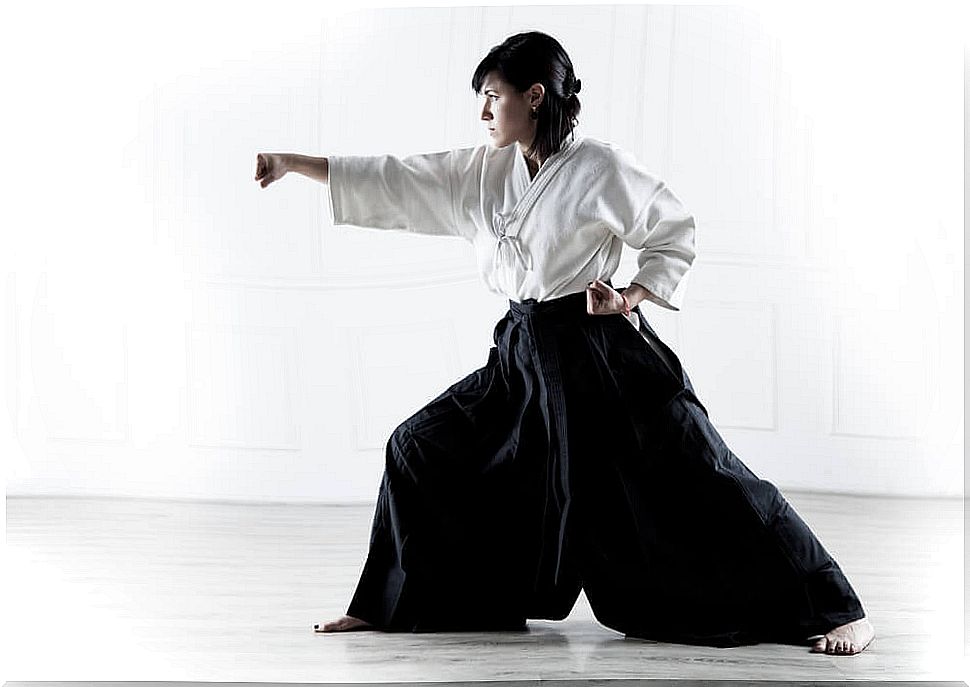
The main foundation of the ancient practice called aikido is the control of all conflictive situations in a peaceful way. Today, aikido is present in many environments, due to the usefulness of applying its teachings in any type of problem, be it individual or group in nature.
Aikido lessons go beyond the physical skills and abilities that are acquired with each practice, and are also useful as control strategies.
These teachings are also linked to the mental and spiritual part, and have key foundations that allow us to maintain the essence of art without misrepresenting its purpose.
What is aikido?
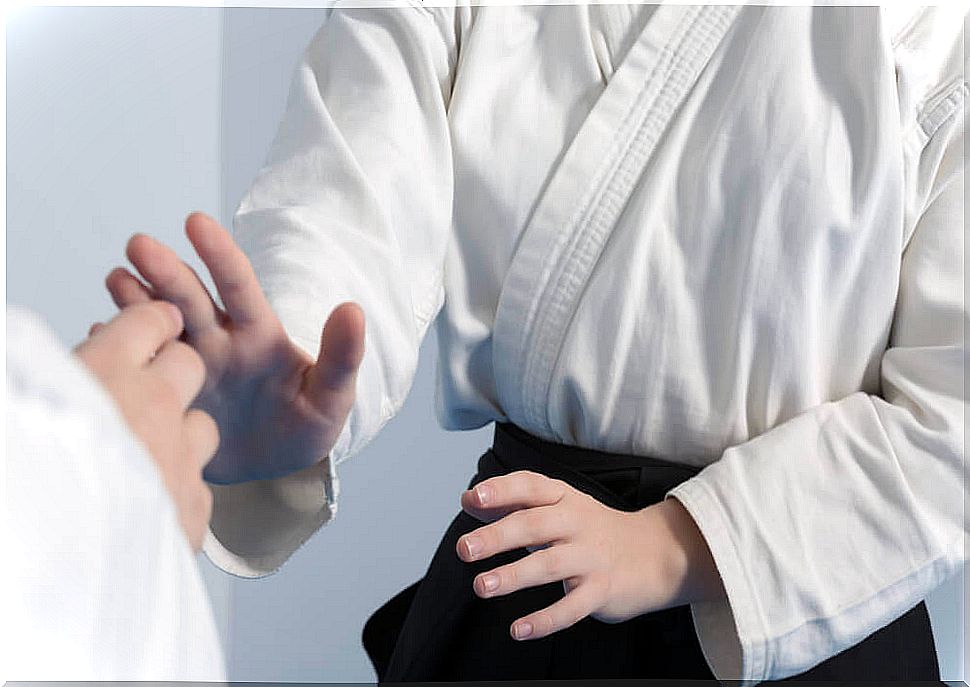
Aikido is a Japanese martial art that is based on the peaceful control of any conflictive scene. He is known for his teachings in the field of personal defense, as it includes techniques such as takedowns, dodges, deflections, hits at critical points and immobilizations, among others.
However, this discipline has key objectives that transcend violence or aggressiveness, which they consider a wrong way of responding to a problem. In fact, there are no competitions, no winners, no losers, and no rewards for the “best.”
For these reasons, aikido is the preferred practice of countless people who are always committed to peace and the non-violent resolution of problems. This martial art allows opponents to see that violence is not the best way.
In addition, this discipline places the conflict as an opportunity to grow, rather than as a situation from which it is necessary to flee immediately.
Benefits of aikido
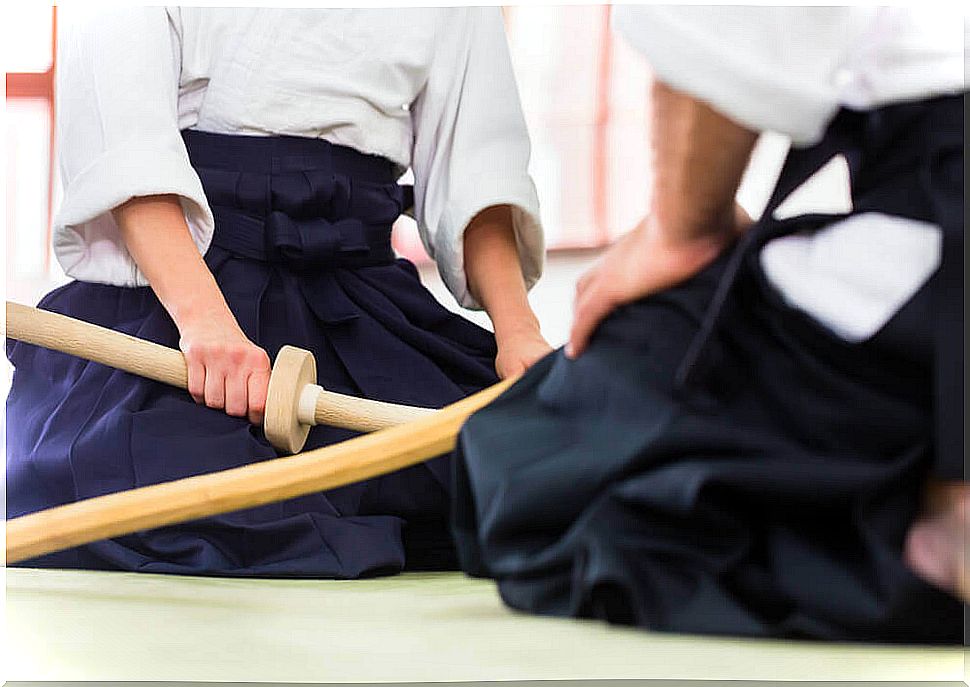
The benefits of aikido are not only physical, as it also contributes to harmony and mental balance. In order to know some of them, below we will highlight the most important:
Aikido immerses you in a peaceful mindset
A study published by Perceptual and Motor Skills details the benefits of this discipline for the development of mindfulness . In this way, it helps to solve any problem without doing any damage to the opponent. Rather, it makes you see him as a person who seeks to reflect on some issue, but without knowing the way to do so.
Generate physical improvements
Research published by the International Journal of Morphology in which the body composition of aikido practitioners was compared with those of other disciplines indicates that, although the changes are not significant, physical improvements do occur from their regular performance.
Specifically, aikido helps to tone the muscles and strengthens the flexibility of the joints and bones. With this, it contributes to the prevention of degenerative diseases that occur as a result of wear and tear.
The International Journal of Sports Medicine published in 2008 a study that concluded that martial arts practitioners had more flexibility in the upper extremities than those who performed other types of sports.
Enhance breath control
As detailed in an article published by Spirituality in Clinical Practice , this Japanese discipline focuses on improving breathing, which also strengthens the respiratory system and keeps the body oxygenated.
Improves mood and reduces stress
Research published by Frontiers in Psychology in 2015 explains that physical activity increases the production levels of the hormones dopamine and serotonin in the body. Both are related to mood, feelings of well-being, and perceived stress.
Based on the above, if you really enjoy aikido and let yourself be carried away during its practice, it will allow you to release hormones that increase your happiness and sense of well-being just like any other sport would.
Other benefits of this discipline
First of all, aikido teaches how to use your opponent’s strength to your advantage. To achieve this, it is important to previously know the operation of each of the joints in order to use them naturally and without causing any damage or fracture.
Likewise, it is a discipline that increases levels of self-confidence, something that greatly influences people’s quality of life. It is because, due to the capacities learned, the individual leaves with a feeling of accomplishment and faith in himself after each session.
What else promotes this ancient practice?
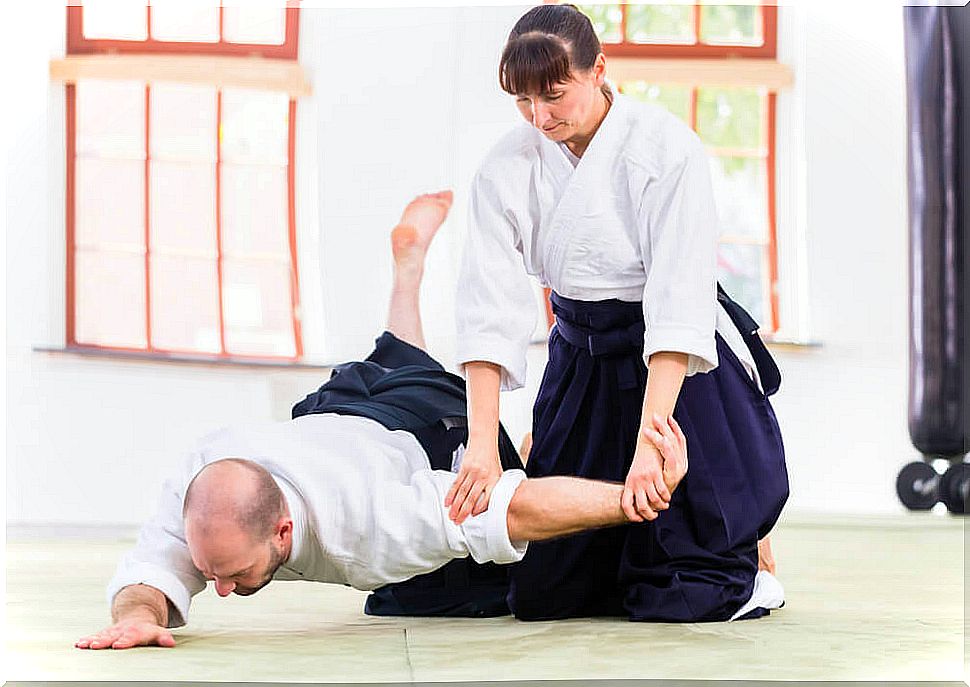
In addition to the “primary” benefits, which would be the ones we mentioned earlier, there are also other advantages that come from the practice of aikido, albeit indirectly. They are as follows:
- Improve your interpersonal relationships, because it gives you the skills to reflect on the nature of the acts.
- Free your Mind. As you practice the activity, you practice your concentration. This allows you to remove thoughts or worries that daily drain you of energy. As a recent study carried out in Costa Rican students indicates, aikido contributes to reducing anxiety and improving mental tranquility.
- Strengthen your thoughts, letting them flow naturally, to finally let yourself be flooded by a feeling of liberation and healing.
In short, the practice of aikido can help you improve the quality of life and bring multiple benefits, both physical and mental. Do you dare to give it a try?




